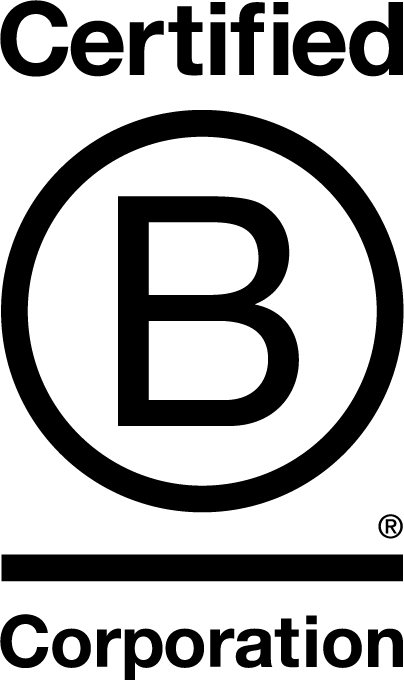Did you know that the amount of plastic in 1 pad is the equivalent to 5 plastic bags (yikes!). The Woman’s Environmental Network identified that on average a woman will use more than 11,000 disposable menstrual products in her lifetime.
Clearly, our periods, are affecting our environment. However, did you also know that our environment can impact our periods. Yes, you heard right, our environment can affect our periods.
Most people know that there are toxins in our environment, it’s inevitable. However, most of us are led to believe that these toxins are in such small amounts that they won’t impact our general health, right? Wrong! Many (not all) toxins in our environment are hormone disruptors and affect our hormonal control system. This means that these toxins, even in low doses, can lead to our body creating too much of one hormone and not enough of the other causing an imbalance (quite the conundrum indeed).
In 2013, the Environmental Working Group created a list of the 12 worst hormone disruptors. It is called the Dirty Dozen (we love the name too). Here is an overview of what they are and what it means for us women. Don’t let the names scare you off.
- BPA
CODE RED! CODE RED! This toxin mimics estrogen and leads to an imbalance as well as blocking our ability to metabolise it. BPA is usually found in (some) plastics marked “PC” or on receipts. Yes receipts. The paper used to print your receipt is coated in BPA so make sure you are washing those hands after handling receipts or refuse them. Saying no to receipts is saying no to synthetic estrogen.
- Dioxins
These bad boys affect hormone signaling in both males and females. They have been linked to the causation of endometriosis and have a devasting effect on sperm. The bad news? It is quite hard to avoid dioxins as they are present in animal foods like meat, fish, milk, eggs and butter (all the good stuff!).
- Atrazine
This herbicide was used in Ireland to control maize weed however (thankfully) it is now banned in the EU. It is however the 2nd most used herbicide in the US so keep an eye on the origin of your fruit and veg.
- Phthalates
Although billons of cells in our body die everyday (which is natural), phthalates signal our body to kill cells prematurely, therefore affecting our hormones. Phthalates is used in the manufacturing of plastic, food containers, household products etc.
- Perchlorate
According to Food Safety Ireland, Perchlorate occurs naturally in the environment but it also arises from the use of some fertilisers and from the manufacture, use and disposal of a toxin used in rocket propellants, fireworks, explosives, flares and air bags. If you ingest too much of this toxin it can affect your thyroid hormone balance.
- Fire Retardants
These chemicals can disrupt our thyroid function and are pretty tough to avoid as they are present in mattresses, couches, furniture, carpets etc. The best thing to do is to make sure that your materials have passed the fire regulation laws and toxic chemicals law before purchase.
- Arsenic
This can be found naturally in some soils leading it to become present in drinking water. It can lead to acne and insulin resistance.
- Mercury
RED ALERT! RED ALERT! Mercury is the ultimate hormones disrupter. When coal is burned, mercury gets into the air and ocean leading to mercury contaminated seafood. It directly affects women’s hormones and hormone control systems interfering with normal hormone signaling.
- Perfluorinated Chemicals
This chemical is used in the production of non-stick cookware and waterproof clothes (*throws non-stick frying pan out the window immediately). They can alter female hormones and appears to never break down or leave the body which is very worrying. Scientists are still figuring out the long-lasting effects however it was found to affect the thyroid and sex hormone levels when studied in animals.
- Organophosphate Pesticides
A common pesticide used today. It can affect thyroid and ovarian hormones. Tip: Buy organic fruit and vegetables where possible and always wash them before use.
- Glycol Ethers
Can be found in paints, cosmetics, cleaning products and brake fluid. It is linked to issues with fertility and in order to avoid exposure, avoid these two ingredients: 2-butoxyethanol (EGBE) and methoxydiglycol (DEGME).
Scientific bit over.
Now onto the good stuff, the solution. How can we reduce our Toxic Load? There are many ways we could look at this, from the food we eat, to the products we buy, to what we put on our skin. It’s really important to remember that even a small change can be a big win in the long run (eyes on the prize). We have listed 5 small changes you can make to reduce your toxic load and the number of synthetic hormones entering your body causing chaos.
- Keep all products that stay on the skin organic or natural
For example, fake tan, deodorant, or moisturiser are all products whose very essence is to soak into the skin.
(Riley recommendations (tried and tested))- TanOrganic for...yes, you guessed it… tan and Wild or Indeora for natural deodorant)
Remember products that are washed off quickly such as cleanser, body wash and shampoo have less of an effect on our toxic load as they do not infiltrate our pours.
- Ensure all personal care products are phthalates and paraben free (where possible)
Similar to point 1, but if you can’t go organic/natural (and we all know how tight finances get at the end of the month), opt for products that are phthalates and paraben free (companies will usually highlight this on the packaging, it’s a badge of honor these days).
- Swap to sustainable sanitary products
Yes, there are chemicals in the products we use for our period. More and more we see influencers or ads talking about the menstrual cup as the only alternative to reducing toxins that we are exposed to with sanitary products. They also suggest the menstrual cup is the only option to help the environment but not anymore… *Enter Riley*…. Okay okay, we won’t go into full blown sales pitch mode but what we will say is that Riley is made with 100% certified organic cotton (none of that synthetic stuff) AND are fully compostable (except the tampon applicator, that can be recycled). So now you can help the environment and your hormones, it’s a win win.
- Stay clear of non-stick cookware
See #10 of the Dirty Dozen.
- Stop reusing plastic bottles
We are all guilty of refilling that water bottle when we are on the go. However, it is really important to use either steel or glass water bottles if we intend to refill them. When plastic bottles are heated (sun exposure beside a window, sitting in a hot car or office) they release toxins into the water and when we ingest them it can lead to elevated levels of estrogen (not the good kind that makes you happy and increases sex drive but the bad kind that gives you painful cramps and sore boobs).
- Ensure your household products are eco friendly
This means there will be less harsh chemicals being ingested by you or anyone else, who washes the floor, scrubs the toilet or disinfects the house. All of which can influence your hormone balance.
Now, we are off to throw away our plastic bottles and nonstick cookware and go get us some sustainable organic tampons. Anyone know of a good brand?
As a business, we are motivated by the United Nation's Sustainable Development Goals (SDG's). Our commitment to providing eco-friendly period products addresses SDG #9, #12 and #13. At Riley, we feel incredibly strongly about this. We believe that periods shouldn’t cost the earth. Thanks for being part of the change.
If you have any questions or would like to know more please don’t hesitate to get in touch by emailing hello@weareriley.com or leaving a comment below.



